“All of these areas are now in an exponential growth phase. The final stage of exponential growth is explosive and looks like a spike that goes straight up. A spike for a major sample like global population or the Dow never finishes with just a sideways move. Once a spike move has finished, it always results in a spike move down.
It seems that everything in the world is developing much faster today, such as computers and mobile phones or robots. The world assumes that this exponential growth in so many areas will continue or even accelerate further. But sadly, that is unlikely to be the case.
There is a more scientific illustration of how these exponential moves occur and also how they end.
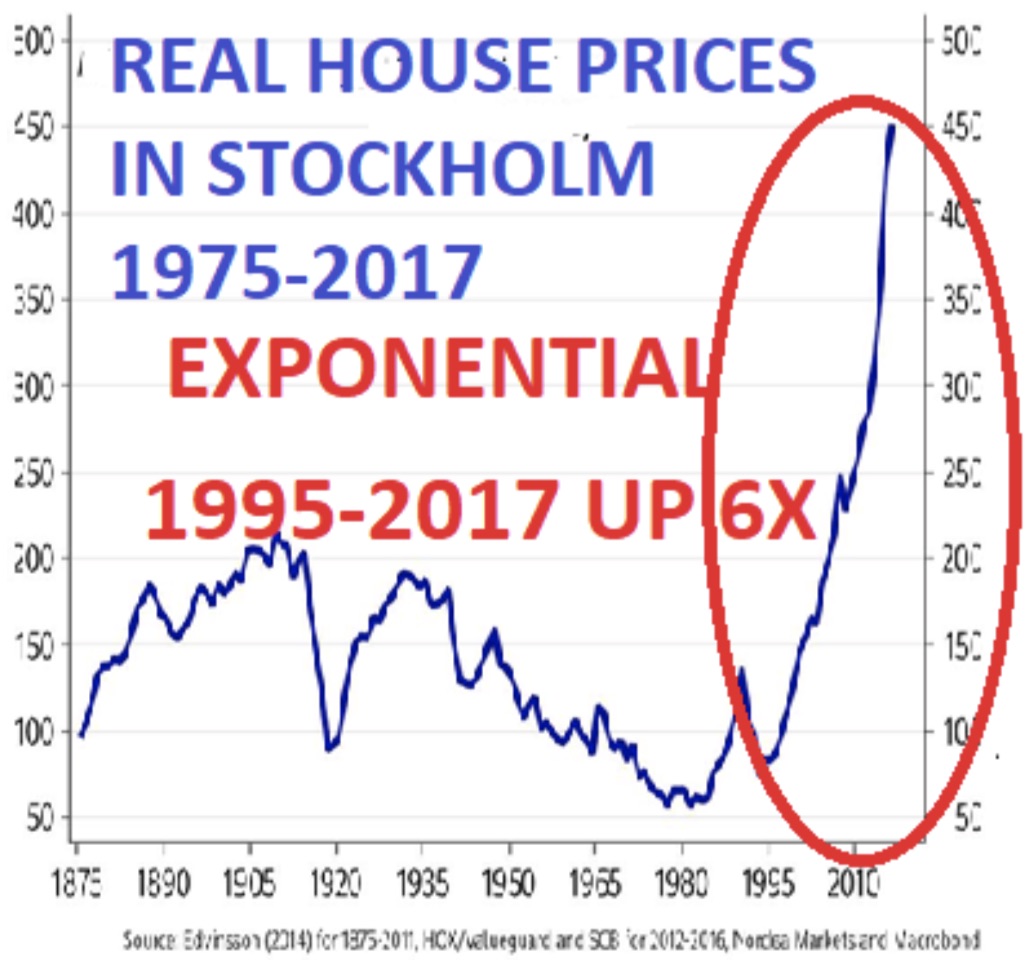
Imagine a football
That is the simple explanation why we are seeing this very fast exponential move in so many areas. It is of course impossible to say exactly when the global stadium or individual stadiums will be filled especially since we don’t know the size of these stadiums. What we do know is that when it is full, the water level will not only stop rising but the stadium will collapse.
We are probably now in the final minute, or probably seconds,
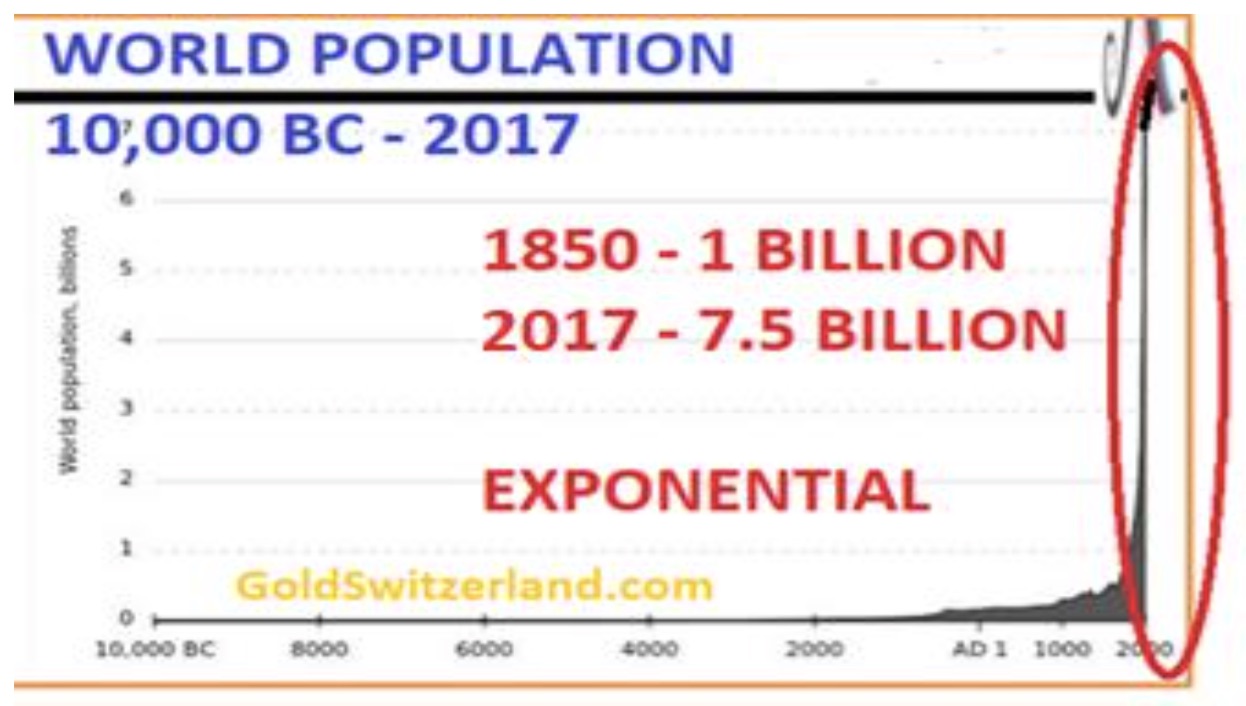
If we look at a few examples of exponential growth, we can start with world population. For thousands of years global population grew very slowly but finally reached 1 billion in the 1850s. Since then it has gone up over 7x to 7.5 billion. Many “experts” now forecast that we will soon reach 15 or 20 billion.
Yes, global population could grow slightly from here but more likely is that we will see a major reduction in the coming decades. It could even happen a lot faster depending on the type of event that the world is facing. Looking at the size of the exponential move, 6.5 billion people have been added to world population since the mid 1850s. A normal correction to such an exponential growth would be 38% to 50%. This would mean that world population could go down between 2.5 and 3.7 billion to 3.8 to 5 billion people. This clearly sounds horrendous and
The
It is absolutely clear that one or several of these events will take place in coming
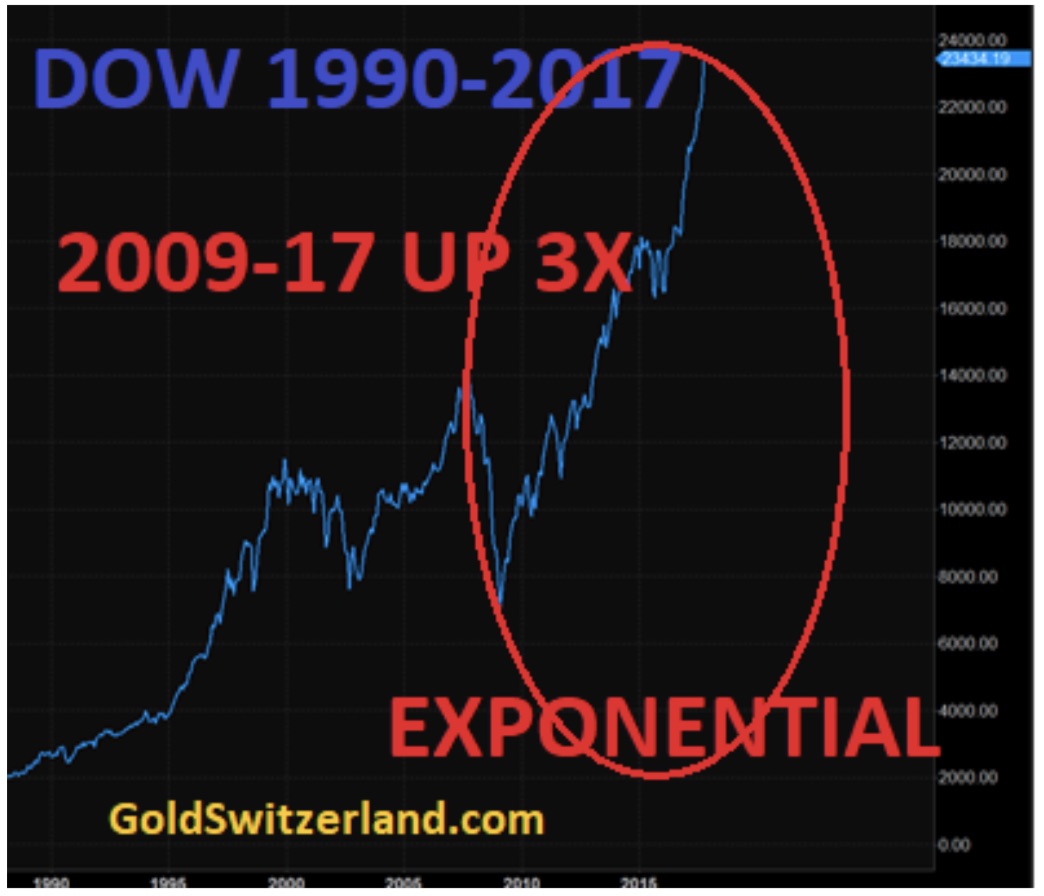
A contrarian or a risk averse investor can today look at any chart of stocks, bonds or property, which will all tell him that we are now at extremes. On a risk/reward basis, very few investors make money by buying at the very final stages of a move. Yes, it is true that anyone who bought into the Nasdaq in early 1999 had more than doubled his money by March 2000. The problem is that more than 95% of investors stayed in at that point and most did not get out until they had lost 50-80%.
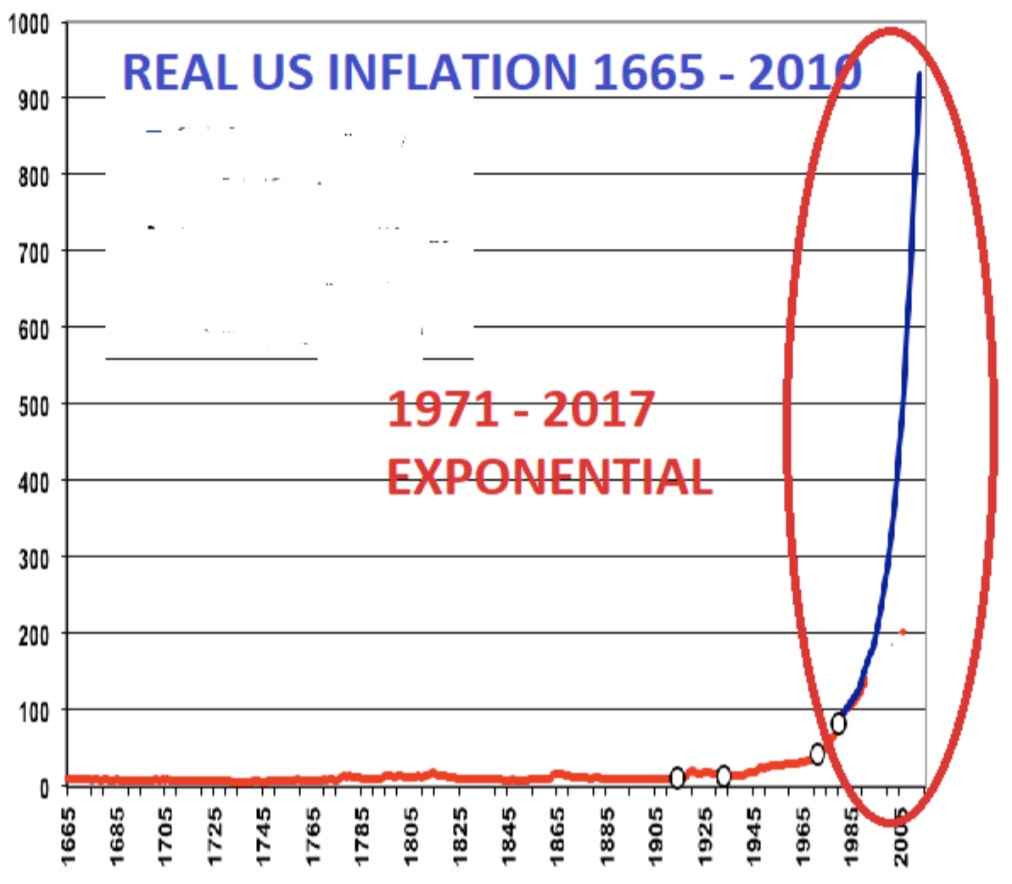
As the superb Chairman of Sprott USA, Rick Rule, stated at the New Orleans Investment Conference last week: “Either you are a contrarian or you will be a victim.” The reality is that most people will be victims in coming years. Very few will realize that what we will see next is the end of a major era or cycle of a major degree. Whether it is a 300 year cycle or a 2,000 year cycle doesn’t really matter. Historians will know afterwards. What we need to focus on today is to protect ourselves against these risks rather than to become victims.
Back in 2002, we decided as a company that risk in the world would accelerate in coming years and it was the right time to protect ourselves and our clients. Gold at that time was unloved and undervalued. It had been going down for 20 years and nobody was interested. Gold bottomed in 1999 at $250, having gone down from the $850 peak in January of 1980.
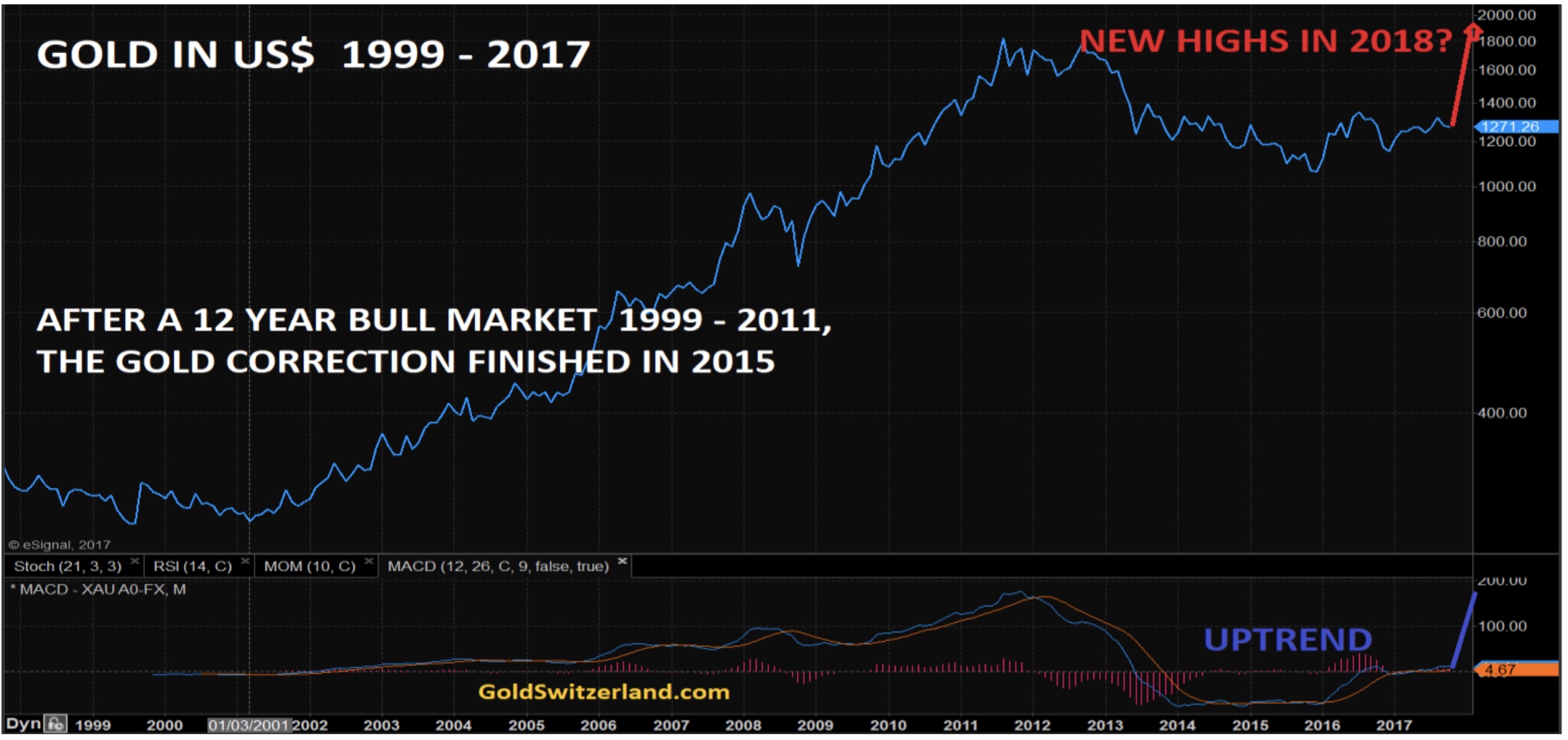
The average investor obviously did not get very excited that gold had gone up $50 since 1999, and was $300 in February 2002. That was when we decided to put a significant percentage of our own funds into gold as well to recommend to our investors
This is a typical contrarian investment. You buy an asset that is on nobody’s radar screen, and in the case of gold in 2002, 65% below its peak price 22 years earlier. But it is of course not enough just to buy something which is cheap. What you buy must also have an intrinsic value and the potential to grow substantially. Gold’s role as the only money that has existed and survived for almost 5,000 years makes it clear that function is likely to continue for many
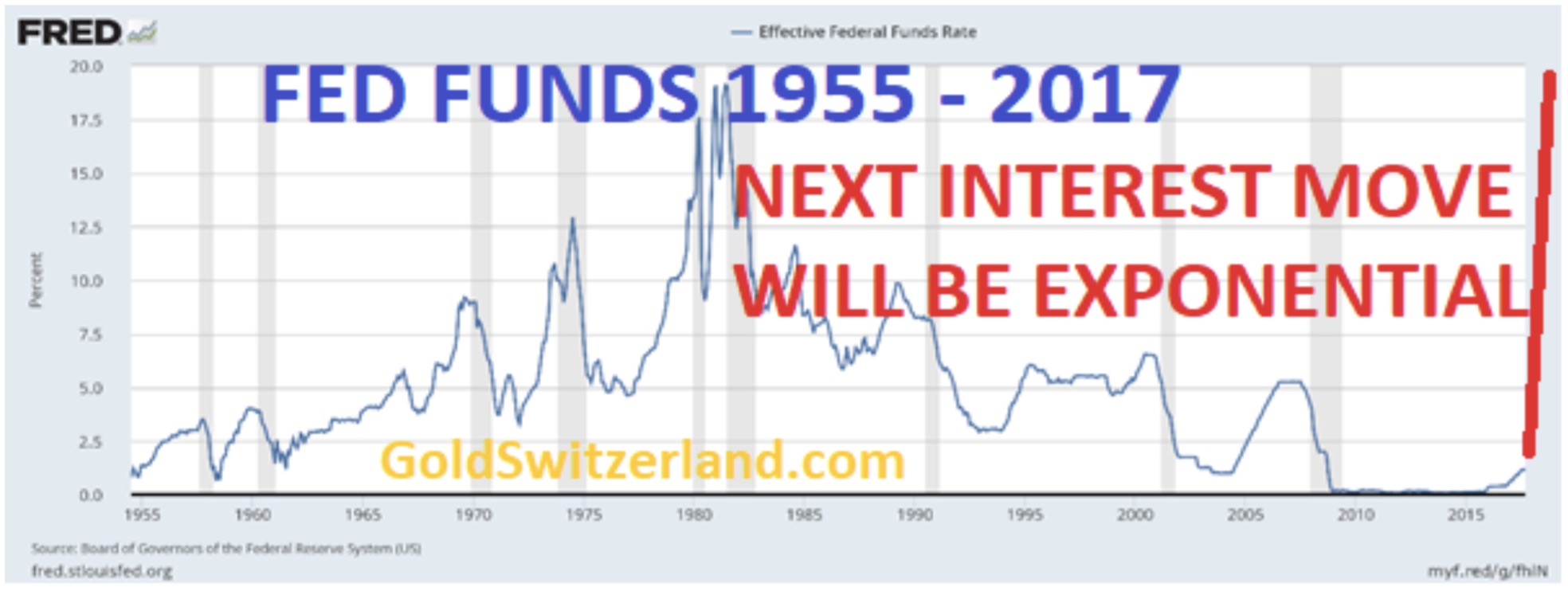
Also, Greenspan’s easy money policy had started in 1987 when Fed Funds reached 10%. With a weak economy, and weak asset
- Source, King World News